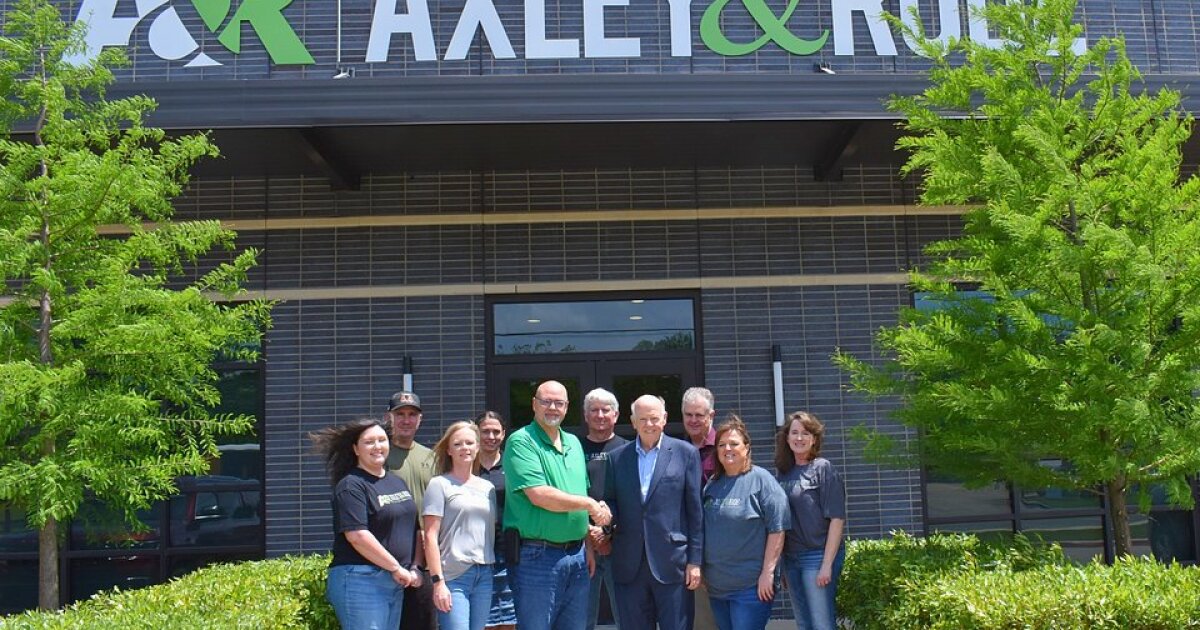The accounting talent shortage has reached a near-crisis level, with all indications that the trend will continue for some time.
As turnover increases and the pipeline shrinks, innovative companies are rethinking traditional staffing strategies.
And that’s transforming how small and midsized businesses, as well as CPA firms, ensure they have the professionals to make data-driven decisions and support growth.
The accounting talent crisis by the numbers
The data reveals a multifaceted problem, especially for companies that lack the financial resources or name recognition to compete for the short supply of qualified, experienced accounting talent.
- The accounting workforce shrank by 17% between 2020 and 2002, according to The Wall Street Journal. Over 300,000 accountants and auditors vacated their positions in that period.
- Turnover averaged 19% as of mid-2023, according to an IPA Practice Management Report — a stark contrast to historical levels.
- Nearly half of all accounting professionals leave their firms within one to three years and seven out of 10 stay one to six years, an Illinois CPA Society survey found.
- Almost three-quarters of all CPAs reached retirement age in 2019, according to the American Institute of CPAs, creating a massive talent drain.
The pipeline problem: Why the old model doesn’t work
Meanwhile fewer students are choosing accounting as their field of study. The number of college students graduating with an accounting degree declined from 8,000 in 2017 to about 6,500 in 2022. And CPA exam candidates dropped by 17% the same year, according to the AICPA.
Why the dip in incoming accountants? Realities like low pay, burnout and educational requirements are dampening interest.
The Wall Street Journal reports that median inflation-adjusted salaries for young accountants have stagnated, while compensation in other industries has shot up. Sectors like technology and consulting have the resources to lure top talent with 20%-30% higher average starting salaries than accounting.
A demanding workload and the added pressures of tax and audit season also discourage new graduates from entering the field. A 2024 study by the Center for Accounting Transformation and CPA Trendlines found that 68% of accounting professionals are experiencing burnout.
The reform movement: Unlocking new CPA pathways
The 150-hour educational requirement to sit for the CPA exam also poses a hurdle many students aren’t willing to clear. But several states are eliminating this barrier in the hopes of enticing more young accounting professionals.
Beginning in January 2026, candidates in Ohio and Virginia can choose from multiple pathways to CPA licensure, including options that combine a bachelor’s degree with an accounting concentration and a specified number of years of professional work experience. As of this writing, Utah and Texas were considering similar models, and Minnesota plans to reintroduce reform legislation this year after it failed to pass in 2024.
While these state-level reforms are encouraging, the jury is still out on whether lowering educational barriers to entry will make a meaningful, sustainable difference. And to date, there is no nationwide consistency in CPA educational requirements, which could create confusion or concern for students who want the flexibility to launch a multi-state job search.
Modernizing accountant hiring, development and retention
Demand for accounting services is projected to increase at a compound annual growth rate of 1.7% over the next five years, per IBIS. Accounting firms that solve the talent conundrum will be in prime position to capitalize on new business opportunities, outperform the ever-expanding field of competitors, and enjoy steady, profitable growth.
Likewise, small to midsized businesses will need to address the growing gap in accounting talent supply and demand. Otherwise, they’ll struggle to support growth, attract investors or make data-driven decisions that keep them a step ahead of the competition.
We’re already seeing forward-thinking businesses adapt their hiring and professional development strategies to attract and retain qualified accountants. Solutions like the following tend to top the list:
- Incentive-laden packages. Compensation is a big driver in the decision, but innovative companies are thinking more creatively about how to provide more value. Equity offerings can make an early-stage company more attractive to young accountants, and robust benefits are a draw in any environment.
- Mentorship programs. A structured approach to mentoring creates an environment where young professionals feel confident they can grow and develop … and are more likely to stay longer.
- Defined career paths. In a small or midsized business, early-career accountants might not see a clear road to advancement. Mapping out a path of progressively greater responsibilities can ease concerns about stagnating and retain top talent longer.
- Flexible work options. Interest in remote and hybrid work environments remains strong post-COVID. With some companies mandating a return to the office, these options can differentiate employers and attract top candidates.
- Stronger engagement. Today’s employees value a culture where they feel more connected to the organization and more committed to its mission and vision. For nonprofits, the mission is an especially strong draw that can reduce attrition.
Smart accounting staffing models: It’s no longer either/or
Both CPA firms and small to midsized businesses are increasingly blending in-house accounting teams with outsourced professionals. Augmenting internal staff with outsourced talent can prove a long-term, viable, strategic staffing approach that provides a competitive advantage.
This hybrid approach helps the organization:
- Fill staffing gaps without the high cost, lead time and challenges of relying solely on FTE hiring and onboarding ;
- Gain the specialized skills and expertise required for a specific engagement or project, such as SOX internal audit and internal control experience, or expertise in financial modeling or FP&A;
- Tap industry-specific accounting expertise that can be tough to find and keep in-house — a big boon for businesses that grapple with sector-specific regulations and operational nuances;
- Ease the capacity constraints that prevent growth-minded businesses from achieving their revenue goals;
- Keep up with demand during annual busy seasons or other peak periods, without investing in more permanent hires or overextending internal teams;
- Offload routine tasks from internal accountants, freeing them to take on higher-value work that improves job satisfaction;
- Maintain a high level of service quality, no matter how heavy the workload;
- Respond effectively to urgent needs and tight deadlines, without burdening the internal team.
Another accounting staffing strategy that’s gaining traction is the creation of a virtual captive center. In this hybrid model, an experienced third-party provider sets up a virtual center of accountants fully dedicated to a single company. Then they manage the staff, infrastructure and other resources on the organization’s behalf. A virtual captive center might be the right solution for a CPA firm or other enterprise that handles a large volume of accounting work, but is struggling to recruit, retain and manage a sizable team.
Smaller enterprises are also using strategies like internal job sharing, part-time roles and shared talent pools to avoid the challenges of trying to compete against organizations with deep pockets for the same limited candidates.
The technology push: How AI and automation ease talent constraints
Along with evolving their staffing model, many businesses are looking to technology to help solve the accounting talent crunch. They’re investing in AI-powered tools and other forms of automation — not to replace their staff accountants, but to help them operate more efficiently.
By providing accounting professionals with the tools and training to work smarter, businesses are freeing them from mundane work so they can focus on strategic pursuits. The more streamlined their processes, the more manageable their workload. And as accounting roles become vacant, the organization has the flexibility to leverage AI and other technology to fill the void — opening many more possibilities than simply posting a position for hire.
Often, an off-the-shelf software package or readily available AI-powered tool will fill the need. Other times, the business might need a customized solution. Partnering with a provider that’s experienced in choosing and implementing accounting technology can help the business apply the right innovation, faster and with confidence. An outsourced partner also has the resources to keep up with rapidly advancing AI and other technologies, and can leverage that expertise to train internal accountants how to use it effectively.
Winning the long game
The accounting talent scarcity problem isn’t likely to reverse any time soon, and it will take years to build back up the pipeline. In the meantime, a multipronged, adaptable staffing strategy is likely the best course of action for CPA firms and small to midsized businesses. By pairing innovative staffing models with the use of AI and other efficiency-boosting technology, these organizations can fill talent gaps, meet demand, and stay competitive over the long haul.


 Economics1 week ago
Economics1 week ago
 Accounting1 week ago
Accounting1 week ago
 Economics1 week ago
Economics1 week ago
 Personal Finance1 week ago
Personal Finance1 week ago
 Blog Post4 days ago
Blog Post4 days ago
 Economics5 days ago
Economics5 days ago
 Personal Finance1 week ago
Personal Finance1 week ago
 Finance1 week ago
Finance1 week ago











